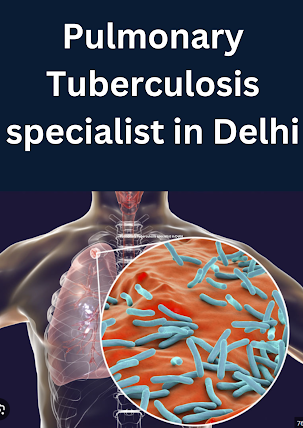Pulmonary Tuberculosis specialist in Delhi
current information about specific medical practitioners or specialists. However, I can suggest a general approach to finding a pulmonary tuberculosis specialist in Delhi:
1. **Ask for Recommendations:** Consult your primary care physician or general practitioner for a referral. They may be able to recommend a specialist based on your specific needs.
2. **Use Online Directories:** Websites like Practo, Lybrate, and Credihealth provide lists of doctors, including specialists in various fields. You can search for pulmonary tuberculosis specialists in Delhi on these platforms.
3. **Hospital Websites:** Visit the websites of prominent hospitals in Delhi. They often have directories of their medical staff, including specialists. Apollo Hospitals, Max Healthcare, and Fortis Healthcare are some well-known hospitals in Delhi.
4. **Medical Associations:** Check with medical associations such as the Delhi Medical Association (DMA) or the Indian Medical Association (IMA) for recommendations or directories of specialists.
5. **Online Reviews and Ratings:** Once you identify potential specialists, you can look for online reviews and ratings from other patients. This can give you an idea of their reputation and the quality of care they provide.
6. **Seek Referrals from Friends and Family:** If you know anyone in Delhi who has had experience with a pulmonary tuberculosis specialist, consider asking them for recommendations.
7. **Contact Health Insurance Provider:** If you have health insurance, your insurance provider might have a network of specialists that they cover. Contact them for a list of specialists in the field.
Remember to verify the credentials and experience of any specialist you're considering. You might want to inquire about their experience with pulmonary tuberculosis, their qualifications, the hospitals they are affiliated with, and any other relevant information. Always consult with a medical professional before making any healthcare decisions.
Importance of Pulmonary Tuberculosis specialist
Pulmonary tuberculosis (TB) is a serious infectious disease caused by the bacterium Mycobacterium tuberculosis. It primarily affects the lungs but can also spread to other parts of the body. A pulmonary tuberculosis specialist plays a crucial role in the management, treatment, and prevention of this disease. Here's why their expertise is important: 1. **Accurate Diagnosis:** Pulmonary tuberculosis can have varied and sometimes nonspecific symptoms, such as cough, fever, fatigue, and weight loss. A specialist is trained to recognize these symptoms and conduct appropriate diagnostic tests, such as sputum tests, chest X-rays, and molecular tests, to accurately diagnose the disease. 2. **Expert Treatment:** Pulmonary tuberculosis treatment involves a combination of antibiotics over an extended period. The specific regimen, duration, and choice of medications can vary based on the patient's medical history, drug sensitivity, and the presence of drug-resistant strains. A specialist can design an effective treatment plan, monitor its progress, and adjust it as needed. 3. **Drug-Resistant TB Management:** Drug-resistant tuberculosis, including multidrug-resistant (MDR-TB) and extensively drug-resistant (XDR-TB) forms, is a growing concern. Specialists are knowledgeable about the complexities of managing these cases, including selecting appropriate second-line drugs and closely monitoring patients for adverse effects. 4. **Preventing Transmission:** Pulmonary tuberculosis is highly contagious. Specialists can educate patients about proper hygiene practices, infection control measures, and how to minimize the risk of spreading the disease to others, especially in close living quarters. 5. **Monitoring and Follow-Up:** Treatment for pulmonary tuberculosis can be lengthy and requires close monitoring. Specialists track patients' progress through regular check-ups, laboratory tests, and imaging studies to ensure the effectiveness of treatment and manage any complications that may arise. 6. **Adherence Support:** Successful treatment of pulmonary tuberculosis requires strict adherence to medication schedules. A specialist can provide guidance, support, and education to help patients understand the importance of completing their treatment regimen and addressing any challenges they may face. 7. **Collaboration with Other Healthcare Providers:** Pulmonary tuberculosis can affect other organs and systems, and patients may have comorbidities. Specialists collaborate with other healthcare professionals to ensure comprehensive care and address all aspects of the patient's health. 8. **Research and Up-to-Date Knowledge:** Specialists are often involved in research related to tuberculosis, staying up to date with the latest advancements in diagnostics, treatments, and management strategies. This knowledge ensures that patients receive the most current and effective care. 9. **Public Health Impact:** Pulmonary tuberculosis is a significant public health concern, especially in areas with high prevalence. Specialists contribute to public health efforts by participating in surveillance, contact tracing, and disease control programs. In summary, a pulmonary tuberculosis specialist plays a critical role in accurately diagnosing, effectively treating, and preventing the spread of this infectious disease. Their expertise ensures that patients receive the best possible care and contributes to public health efforts to control tuberculosis.

Comments
Post a Comment